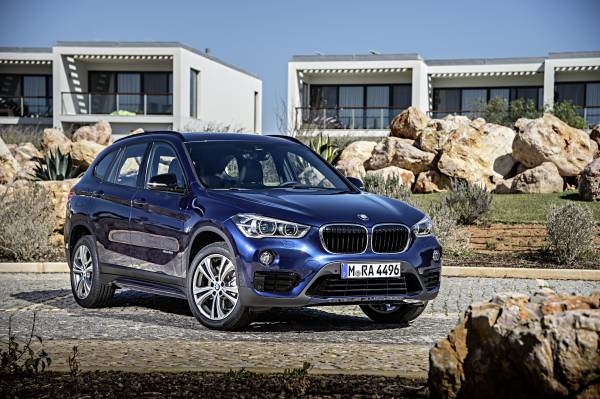
| The new BMW X1. BMW X1 xDrive25i - Sport Line - Mediteranean Blue - Light-alloy wheels double spoke 568 - Interior, Dakota ... |
LIPUTANSATU.COM - The new BMW X1 – the successor to the model that blazed the trail for
this class of car – treats the premium compact segment to an even more
potent shot of Sports Activity Vehicle DNA. The second generation of
this successful model, more than 730,000 units of which have now been
sold, takes to the stage with a body design straight out of the BMW X
model mould. The interior of the new BMW X1, meanwhile, offers
significantly more space for passengers and luggage, a cutting-edge
premium ambience and functionality grounded in solid engineering.
Four-cylinder engines from the BMW Group’s latest generation of power
units, an efficiency-optimised version of the BMW xDrive intelligent
all wheel-drive system and newly developed chassis technology all help
to palpably enhance sporting ability and ride comfort compared to the
outgoing model – with fuel consumption and emissions reduced by up to
17 per cent, model-on-model.
Alongside its market-leading dynamics and efficiency, a host of innovative equipment features also help to secure the new BMW X1 its stand-out position in the segment. Among the items on the options list are full-LED headlights, Dynamic Damper Control, the BMW Head-Up Display and the Driving Assistant Plus system.
A typical BMW X model: sturdy proportions, impressive variability and established premium characteristics.
Rugged proportions, a powerful presence and dynamic lines lend the new BMW X1 a commanding appearance and highlight its status as the youngest member of the BMW X model family. The new model has grown in height compared to its predecessor (+53 millimetres), which has helped increase the spaciousness of the interior. And its significantly raised seating position (+36 millimetres at the front, +64 millimetres at the rear) optimises the driver’s view out over the road.
Knee room in the rear has increased by 37 millimetres in standard specification and by up to 66 millimetres with the optionally adjustable rear seat, while the 505-litre boot capacity is 85 litres larger than that of its predecessor. Folding down the standard-fitted 40:20:40 rear seat backrest, which can also be specified in angle-adjustable form as an option, allows load capacity to be expanded to as much as 1,550 litres. The optional folding front passenger seat backrest and a rear seat bench which can slide 13 centimetres fore and aft offer additional variability.
The interior design of the new BMW X1 combines the driver-focused cockpit design that has become a hallmark of the brand’s models with touches promoting authoritative, SAV-style driving pleasure and a contemporary premium ambience. Standard equipment includes air conditioning, an audio system with USB and AUX-in sockets, and the iDrive operating system, whose 6.5-inch display is integrated into the instrument panel in freestanding monitor form. Meanwhile, the Advantage, Sport Line, xLine and M Sport packages available as an alternative to standard specification open the door for targeted individualisation.
New generation of engines, efficiency-optimised xDrive all-wheeldrive system.
The second-generation BMW X1 (fuel consumption combined: 6.4–4.1 litres/100 km [44.1–68.9 mpg imp]; CO2 emissions combined: 149–109 g/km) lines up with an all-new selection of engines. Two petrol and three diesel units will be available from launch in October 2015, all of which have four cylinders and are members of the BMW Group’s new engine family.
Outputs range from 110 kW/150 hp to 170 kW/231 hp. The engines link up with either a six-speed manual gearbox or an eight-speed Steptronic unit, both of which are new developments.
The xDrive intelligent all-wheel-drive system also takes its place in the new BMW X1 in a further developed form. The weight-saving, compact and efficient system uses an electro-hydraulically controlled multi-plate clutch to distribute drive between the front and rear axle just as required for the situation at hand.
Joining the fray in the BMW X1 sDrive20i and BMW X1 sDrive18d, meanwhile, is a front-wheel-drive construction which has been developed to deliver the driving dynamics typical of the brand and has already proved its mettle in the BMW 2 Series Active Tourer and BMW 2 Series Gran Tourer.
Premiere in the BMW X1: Head-Up Display and Driving Assistant Plus.
The change of BMW X1 generations also brings significant advances in the field of intelligent connectivity. A new addition to the range of BMW ConnectedDrive features is a BMW Head-Up Display which, as in the larger BMW X models, projects driving-related information directly onto the
windscreen. The BMW X1 can now also be specified with the Driving Assistant Plus line-up of the Active Cruise Control system with Stop & Go function, Lane Departure Warning, Traffic Jam Assistant, Collision Warning and Pedestrian Warning with City Braking function. These systems are complemented by an up-to-the-minute selection of apps allowing customers to add to the car’s comfort, navigation and infotainment functionality, as desired.
Further information on official fuel consumption figures, specific CO2 emission values and the electric power consumption of new passenger cars is included in the following guideline: “Leitfaden über Kraftstoffverbrauch, die CO2-Emissionen und den Stromverbrauch neuer Personenkraftwagen”(Guideline for fuel consumption, CO2 emissions and electric power consumption of new passenger cars), which can be obtained from all dealerships, from the Deutsche Automobil Treuhand GmbH (DAT), Hellmuth-Hirth-Str. 1, 73760 Ostfildern-Scharnhausen and at http://www.dat.de/en/offers/publications/guideline-for-fuel-consumption.html. LeitfadenCO2 (GuidelineCO2)
BMW X1 xDrive25i:
Four-cylinder in-line petrol engine with BMW TwinPower Turbo technology (TwinScroll turbocharger, High Precision Injection, VALVETRONIC variable valve timing, Double-Vanos).
Capacity: 1,998cc, output: 170 kW/231 hp at 5,000 – 6,000 rpm,
max. torque: 350 Nm (258 lb-ft) at 1,250–4,500 rpm.
Acceleration [0–100 km/h / 62 mph]: 6.5 seconds, top speed: 235 km/h (146 mph).
Average fuel consumption*: 6.6–6.4 litres/100 kilometres (42.8– 44.1 mpg imp),
CO2 emissions*: 152–149 g/km, exhaust standard: EU6.
BMW X1 xDrive20i:
Four-cylinder in-line petrol engine with BMW TwinPower Turbo technology (TwinScroll turbocharger, High Precision Direct Injection, VALVETRONIC variable valve timing, Double- Vanos).
Capacity: 1,998cc, output: 141 kW/192 hp at 5,000–6,000 rpm,
max. torque: 280 Nm (206 lb-ft) at 1,250–4,600 rpm.
Acceleration [0–100 km/h / 62 mph]: 7.4 seconds, top speed: 223 km/h (139 mph).
Average fuel consumption*: 6.4–6.3 litres/100 kilometres (44.1–44.8 mpg imp),
CO2 emissions*: 149–146 g/km, exhaust standard: EU6.
BMW X1 sDrive20i:
Four-cylinder in-line petrol engine with BMW TwinPower Turbo technology (TwinScroll turbocharger, High Precision Injection, VALVETRONIC variable valve timing, Double-Vanos).
Capacity: 1,998cc, output: 141 kW/192 hp at 5,000–6,000 rpm,
max. torque: 280 Nm (206 lb-ft) at 1,250–4,600 rpm.
Acceleration [0–100 km/h / 62 mph]: 7.7 seconds, top speed: 225 km/h (140 mph).
Average fuel consumption*: 6.0–5.9 litres/100 kilometres (47.1–47.9 mpg imp),
CO2 emissions*: 139–136 g/km, exhaust standard: EU6.
BMW X1 xDrive25d:
Four-cylinder in-line diesel engine with BMW TwinPower Turbo technology (multi-stage high- and low-pressure turbocharging with variable inlet geometry, common-rail direct injection with solenoid valve injectors, max. injection pressure: 2,500 bar).
Capacity: 1,995cc, output: 170 kW/231 hp at 4,400 rpm,
max. torque: 450 Nm (332 lb-ft) at 1,500–3,000 rpm.
Acceleration [0–100 km/h / 62 mph]: 6.6 seconds, top speed: 235 km/h (146 mph).
Average fuel consumption*: 5.2–5.0 litres/100 kilometres (54.3–56.5 mpg imp),
CO2 emissions*: 137–132 g/km, exhaust standard: EU6.
BMW X1 xDrive20d:
Four-cylinder in-line diesel engine with BMW TwinPower Turbo technology (turbocharging with variable inlet geometry, common-rail direct injection with solenoid valve injectors, max. injection pressure: 2,000 bar).
Capacity: 1,995cc, output: 140 kW/190 hp at 4,000 rpm,
max. torque: 400 Nm (295 lb-ft) at 1,750–2,500 rpm.
Acceleration [0–100 km/h / 62 mph]: 7.6 seconds, top speed: 219 km/h (136 mph).
Average fuel consumption*: 5.1–4.9 litres/100 kilometres (55.4–57.7 mpg imp),
CO2 emissions*: 133–128 g/km, exhaust standard: EU6.
BMW X1 sDrive18d:
Four-cylinder in-line diesel engine with BMW TwinPower Turbo technology (turbocharging with variable inlet geometry, common-rail direct injection with solenoid valve injectors, max. injection pressure: 2,000 bar).
Capacity: 1,995cc, output: 110 kW/150 hp at 4,000 rpm,
max. torque: 330 Nm (243 lb-ft) at 1,750–2,750 rpm.
Acceleration [0–100 km/h / 62 mph]: 9.2 (automatic: 9.2) seconds, top speed: 205 km/h / 127 mph (205 km/h / 127 mph).
Average fuel consumption*: 4.3–4.1 (4.5–4.3) litres/100 kilometres [65.7–68.9 (62.8–65.7) mpg imp],
CO2 emissions*: 114–109 (119–114) g/km, exhaust standard: EU6.
* Figures according to EU test cycle, may vary depending on the tyre format specified.
-END-
The BMW Group
With its three brands BMW, MINI and Rolls-Royce, the BMW Group is the world’s leading premium manufacturer of automobiles and motorcycles and also provides premium financial and mobility services. As a global company, the BMW Group operates 30 production and assembly facilities in 14 countries and has a global sales network in more than 140 countries.
In 2014, the BMW Group sold approximately 2.118 million cars and 123,000 motorcycles worldwide. The profit before tax for the financial year 2014 was approximately € 8.71 billion on revenues amounting to € 80.40 billion. As of 31 December 2014, the BMW Group had a workforce of 116,324 employees.
The success of the BMW Group has always been based on long-term thinking and responsible action. The company has therefore established ecological and social sustainability throughout the value chain, comprehensive product responsibility and a clear commitment to conserving resources as an integral part of its strategy.
www.bmwgroup.com
Facebook: http://www.facebook.com/BMWGroup
Twitter: http://twitter.com/BMWGroup
YouTube: http://www.youtube.com/BMWGroupview
Google+: http://googleplus.bmwgroup.com
Alongside its market-leading dynamics and efficiency, a host of innovative equipment features also help to secure the new BMW X1 its stand-out position in the segment. Among the items on the options list are full-LED headlights, Dynamic Damper Control, the BMW Head-Up Display and the Driving Assistant Plus system.
A typical BMW X model: sturdy proportions, impressive variability and established premium characteristics.
Rugged proportions, a powerful presence and dynamic lines lend the new BMW X1 a commanding appearance and highlight its status as the youngest member of the BMW X model family. The new model has grown in height compared to its predecessor (+53 millimetres), which has helped increase the spaciousness of the interior. And its significantly raised seating position (+36 millimetres at the front, +64 millimetres at the rear) optimises the driver’s view out over the road.
Knee room in the rear has increased by 37 millimetres in standard specification and by up to 66 millimetres with the optionally adjustable rear seat, while the 505-litre boot capacity is 85 litres larger than that of its predecessor. Folding down the standard-fitted 40:20:40 rear seat backrest, which can also be specified in angle-adjustable form as an option, allows load capacity to be expanded to as much as 1,550 litres. The optional folding front passenger seat backrest and a rear seat bench which can slide 13 centimetres fore and aft offer additional variability.
The interior design of the new BMW X1 combines the driver-focused cockpit design that has become a hallmark of the brand’s models with touches promoting authoritative, SAV-style driving pleasure and a contemporary premium ambience. Standard equipment includes air conditioning, an audio system with USB and AUX-in sockets, and the iDrive operating system, whose 6.5-inch display is integrated into the instrument panel in freestanding monitor form. Meanwhile, the Advantage, Sport Line, xLine and M Sport packages available as an alternative to standard specification open the door for targeted individualisation.
New generation of engines, efficiency-optimised xDrive all-wheeldrive system.
The second-generation BMW X1 (fuel consumption combined: 6.4–4.1 litres/100 km [44.1–68.9 mpg imp]; CO2 emissions combined: 149–109 g/km) lines up with an all-new selection of engines. Two petrol and three diesel units will be available from launch in October 2015, all of which have four cylinders and are members of the BMW Group’s new engine family.
Outputs range from 110 kW/150 hp to 170 kW/231 hp. The engines link up with either a six-speed manual gearbox or an eight-speed Steptronic unit, both of which are new developments.
The xDrive intelligent all-wheel-drive system also takes its place in the new BMW X1 in a further developed form. The weight-saving, compact and efficient system uses an electro-hydraulically controlled multi-plate clutch to distribute drive between the front and rear axle just as required for the situation at hand.
Joining the fray in the BMW X1 sDrive20i and BMW X1 sDrive18d, meanwhile, is a front-wheel-drive construction which has been developed to deliver the driving dynamics typical of the brand and has already proved its mettle in the BMW 2 Series Active Tourer and BMW 2 Series Gran Tourer.
Premiere in the BMW X1: Head-Up Display and Driving Assistant Plus.
The change of BMW X1 generations also brings significant advances in the field of intelligent connectivity. A new addition to the range of BMW ConnectedDrive features is a BMW Head-Up Display which, as in the larger BMW X models, projects driving-related information directly onto the
windscreen. The BMW X1 can now also be specified with the Driving Assistant Plus line-up of the Active Cruise Control system with Stop & Go function, Lane Departure Warning, Traffic Jam Assistant, Collision Warning and Pedestrian Warning with City Braking function. These systems are complemented by an up-to-the-minute selection of apps allowing customers to add to the car’s comfort, navigation and infotainment functionality, as desired.
Further information on official fuel consumption figures, specific CO2 emission values and the electric power consumption of new passenger cars is included in the following guideline: “Leitfaden über Kraftstoffverbrauch, die CO2-Emissionen und den Stromverbrauch neuer Personenkraftwagen”(Guideline for fuel consumption, CO2 emissions and electric power consumption of new passenger cars), which can be obtained from all dealerships, from the Deutsche Automobil Treuhand GmbH (DAT), Hellmuth-Hirth-Str. 1, 73760 Ostfildern-Scharnhausen and at http://www.dat.de/en/offers/publications/guideline-for-fuel-consumption.html. LeitfadenCO2 (GuidelineCO2)
- Second generation of the globally successful BMW X representative in the premium compact segment, of which more than 730,000 units have been sold.
- Body design displays the hallmark BMW X design language; rugged proportions, powerful presence, dynamic lines.
- Newly designed interior with significantly improved space and variability, combined with the latest update of the premium ambience for which the brand is renowned.
- Latest-generation four-cylinder engines and gearboxes ensure segmentleading sporting ability and efficiency.
- BMW xDrive intelligent all-wheel-drive system in new, efficiencyoptimising form; BMW X1 sDrive20i and BMW X1 sDrive18d models have front-wheel drive.
- All-new chassis technology delivers segment-leading dynamics and noticeably enhanced ride comfort; Variable Sports Steering and Dynamic Damper Control available as options. M Sport suspension is also offered as an option.
- iDrive operating system, rain-sensing wipers, Servotronic and Driving Experience Control switch as standard.
- Features such as full-LED headlights and automatic tailgate operation added to the options list.
- Precise individualisation: standard specification, Advantage, Sport Line, xLine and M Sport packages.
- Extensive additions to the BMW ConnectedDrive range: BMW Head-Up Display projecting driving-related information directly onto the windscreen, BMW Driving Assistant and BMW Driving Assistant Plus, Parking Assistant with automatic parallel and transverse parking, navigation system with map data updating via a mobile phone connection.
- Production at BMW Plant Regensburg.
- Market launch from October 2015.
- Model variants:
BMW X1 xDrive25i:
Four-cylinder in-line petrol engine with BMW TwinPower Turbo technology (TwinScroll turbocharger, High Precision Injection, VALVETRONIC variable valve timing, Double-Vanos).
Capacity: 1,998cc, output: 170 kW/231 hp at 5,000 – 6,000 rpm,
max. torque: 350 Nm (258 lb-ft) at 1,250–4,500 rpm.
Acceleration [0–100 km/h / 62 mph]: 6.5 seconds, top speed: 235 km/h (146 mph).
Average fuel consumption*: 6.6–6.4 litres/100 kilometres (42.8– 44.1 mpg imp),
CO2 emissions*: 152–149 g/km, exhaust standard: EU6.
BMW X1 xDrive20i:
Four-cylinder in-line petrol engine with BMW TwinPower Turbo technology (TwinScroll turbocharger, High Precision Direct Injection, VALVETRONIC variable valve timing, Double- Vanos).
Capacity: 1,998cc, output: 141 kW/192 hp at 5,000–6,000 rpm,
max. torque: 280 Nm (206 lb-ft) at 1,250–4,600 rpm.
Acceleration [0–100 km/h / 62 mph]: 7.4 seconds, top speed: 223 km/h (139 mph).
Average fuel consumption*: 6.4–6.3 litres/100 kilometres (44.1–44.8 mpg imp),
CO2 emissions*: 149–146 g/km, exhaust standard: EU6.
BMW X1 sDrive20i:
Four-cylinder in-line petrol engine with BMW TwinPower Turbo technology (TwinScroll turbocharger, High Precision Injection, VALVETRONIC variable valve timing, Double-Vanos).
Capacity: 1,998cc, output: 141 kW/192 hp at 5,000–6,000 rpm,
max. torque: 280 Nm (206 lb-ft) at 1,250–4,600 rpm.
Acceleration [0–100 km/h / 62 mph]: 7.7 seconds, top speed: 225 km/h (140 mph).
Average fuel consumption*: 6.0–5.9 litres/100 kilometres (47.1–47.9 mpg imp),
CO2 emissions*: 139–136 g/km, exhaust standard: EU6.
BMW X1 xDrive25d:
Four-cylinder in-line diesel engine with BMW TwinPower Turbo technology (multi-stage high- and low-pressure turbocharging with variable inlet geometry, common-rail direct injection with solenoid valve injectors, max. injection pressure: 2,500 bar).
Capacity: 1,995cc, output: 170 kW/231 hp at 4,400 rpm,
max. torque: 450 Nm (332 lb-ft) at 1,500–3,000 rpm.
Acceleration [0–100 km/h / 62 mph]: 6.6 seconds, top speed: 235 km/h (146 mph).
Average fuel consumption*: 5.2–5.0 litres/100 kilometres (54.3–56.5 mpg imp),
CO2 emissions*: 137–132 g/km, exhaust standard: EU6.
BMW X1 xDrive20d:
Four-cylinder in-line diesel engine with BMW TwinPower Turbo technology (turbocharging with variable inlet geometry, common-rail direct injection with solenoid valve injectors, max. injection pressure: 2,000 bar).
Capacity: 1,995cc, output: 140 kW/190 hp at 4,000 rpm,
max. torque: 400 Nm (295 lb-ft) at 1,750–2,500 rpm.
Acceleration [0–100 km/h / 62 mph]: 7.6 seconds, top speed: 219 km/h (136 mph).
Average fuel consumption*: 5.1–4.9 litres/100 kilometres (55.4–57.7 mpg imp),
CO2 emissions*: 133–128 g/km, exhaust standard: EU6.
BMW X1 sDrive18d:
Four-cylinder in-line diesel engine with BMW TwinPower Turbo technology (turbocharging with variable inlet geometry, common-rail direct injection with solenoid valve injectors, max. injection pressure: 2,000 bar).
Capacity: 1,995cc, output: 110 kW/150 hp at 4,000 rpm,
max. torque: 330 Nm (243 lb-ft) at 1,750–2,750 rpm.
Acceleration [0–100 km/h / 62 mph]: 9.2 (automatic: 9.2) seconds, top speed: 205 km/h / 127 mph (205 km/h / 127 mph).
Average fuel consumption*: 4.3–4.1 (4.5–4.3) litres/100 kilometres [65.7–68.9 (62.8–65.7) mpg imp],
CO2 emissions*: 114–109 (119–114) g/km, exhaust standard: EU6.
* Figures according to EU test cycle, may vary depending on the tyre format specified.
-END-
The BMW Group
With its three brands BMW, MINI and Rolls-Royce, the BMW Group is the world’s leading premium manufacturer of automobiles and motorcycles and also provides premium financial and mobility services. As a global company, the BMW Group operates 30 production and assembly facilities in 14 countries and has a global sales network in more than 140 countries.
In 2014, the BMW Group sold approximately 2.118 million cars and 123,000 motorcycles worldwide. The profit before tax for the financial year 2014 was approximately € 8.71 billion on revenues amounting to € 80.40 billion. As of 31 December 2014, the BMW Group had a workforce of 116,324 employees.
The success of the BMW Group has always been based on long-term thinking and responsible action. The company has therefore established ecological and social sustainability throughout the value chain, comprehensive product responsibility and a clear commitment to conserving resources as an integral part of its strategy.
www.bmwgroup.com
Facebook: http://www.facebook.com/BMWGroup
Twitter: http://twitter.com/BMWGroup
YouTube: http://www.youtube.com/BMWGroupview
Google+: http://googleplus.bmwgroup.com
Documents for downloading:
The following AV media material regarding this press release was
compiled for you. You can also find additional material using the
navigation items "Photo", "Audio" and "Video and TV".
BMW GroupDaniel Chan
Tel.: +65-6838-9639
Fax: +65-6838-9611
E-mail: daniel.chan@bmwasia.com
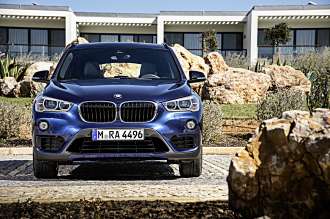
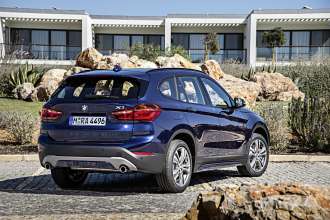
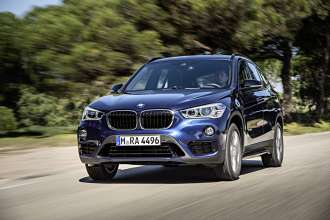
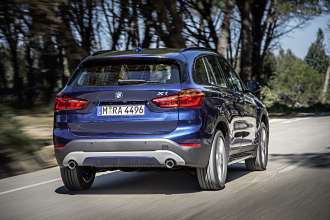
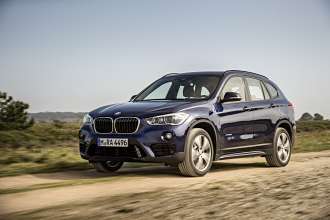
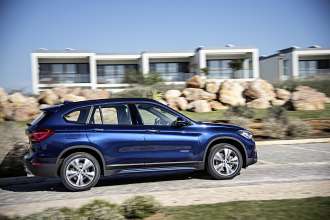
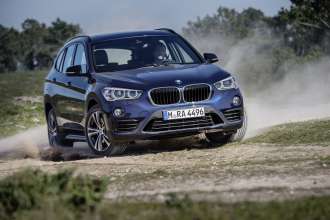
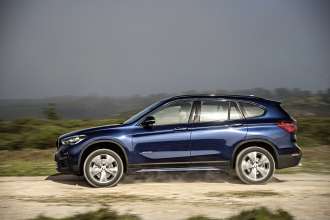
Tidak ada komentar:
Posting Komentar